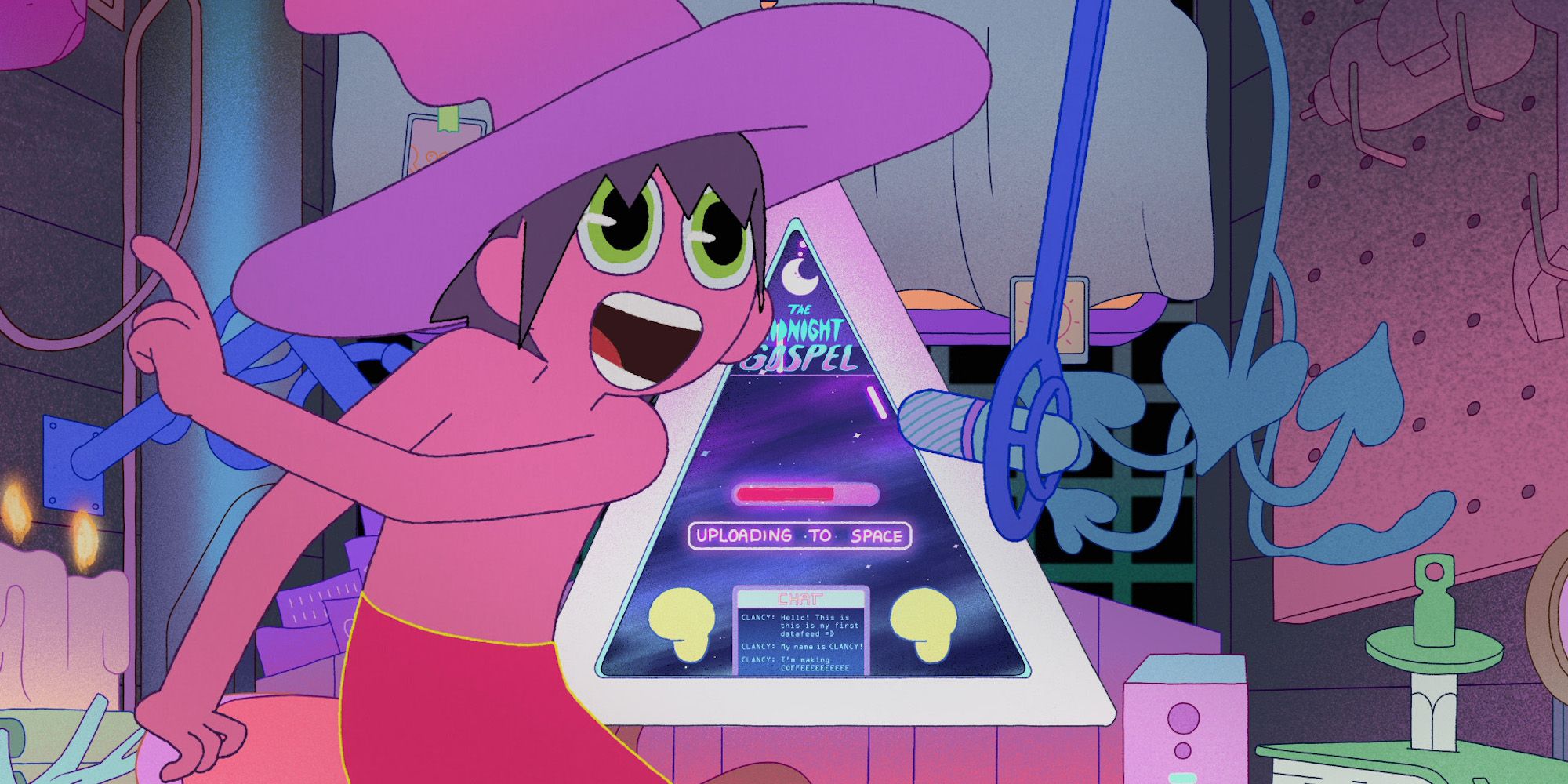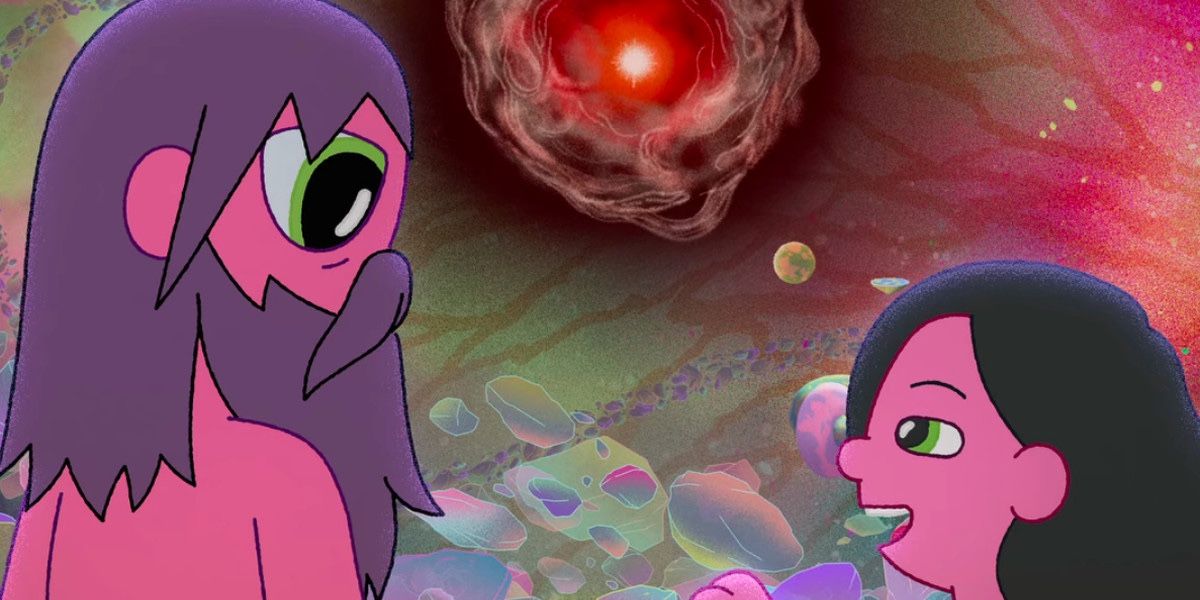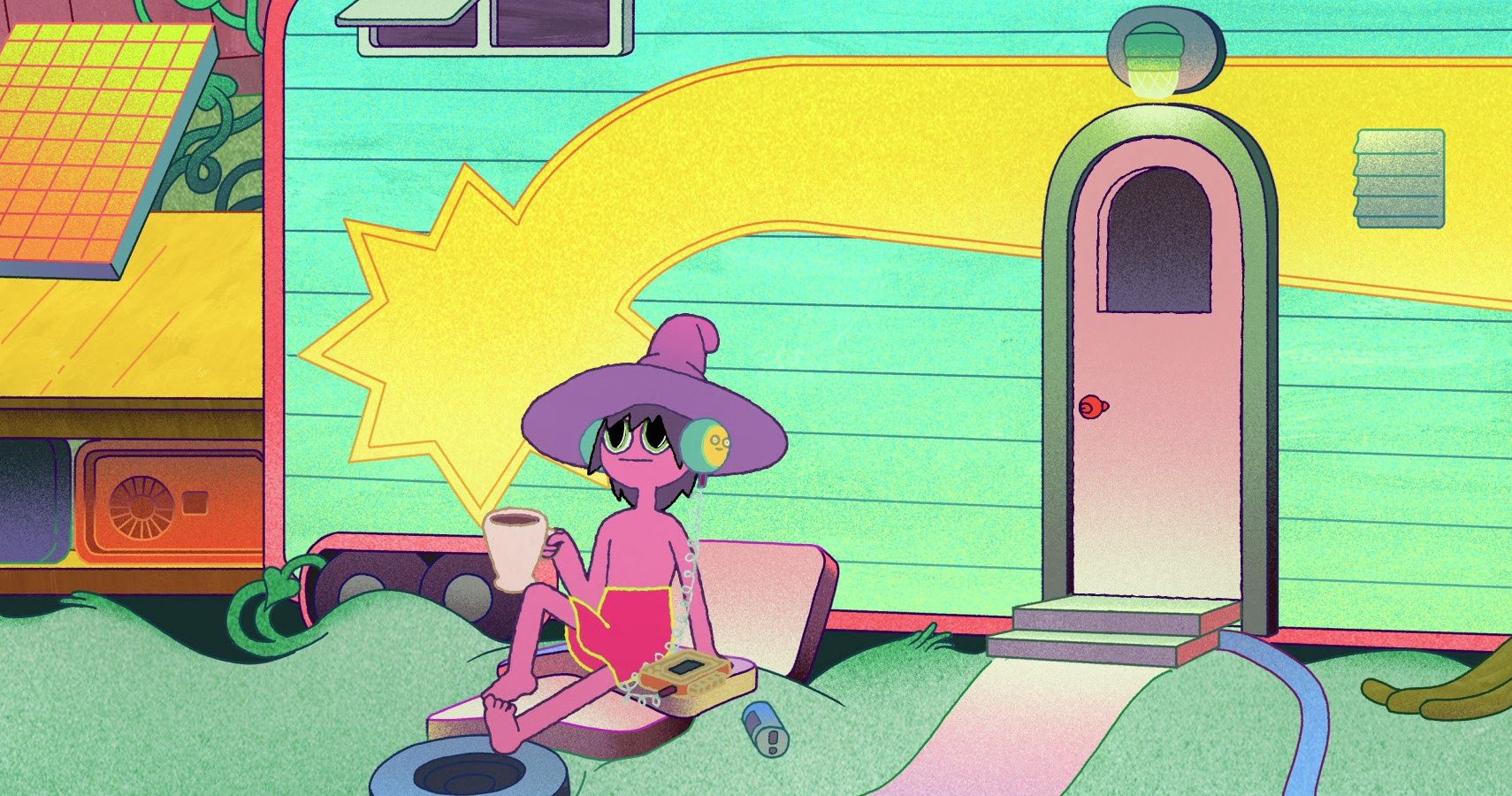Within the last decade, podcasts have become a new basis for adaptation. Yet perhaps the perfect podcast adaptation is the cult hit Netflix series The Midnight Gospel. This eight-episode animated sci-fi show by Adventure Time creator Pendleton Ward adapted Duncan Trussell's Family Hour, a podcast by comedian and writer Duncan Trussell that discussed spirituality, religion and philosophy. Released in 2020, the show was positively received by critics and attracted a devoted fanbase who admired the mix of surreal animation with intellectual discussion. Whether the show will receive a second season is unknown, but Netflix has not confirmed its cancelation.
The Midnight Gospel follows spacecaster Clancy Gilroy as he interviews people from different universes, which he accesses through a universe simulator. As the show continues, it becomes apparent that Clancy is using spacecasting as a distraction from his own sense of existentialism while the universe simulator slowly malfunctions. The final episode culminates in Clancy meeting his mother in the universe simulator before being sucked fully into the machine. The first season ends with Clancy on a bus and finding some peace in his own cosmic insignificance.
What sets The Midnight Gospel apart from other podcast adaptations like Dr. Death or The Shrink Next Door is that The Midnight Gospel includes portions of Trussell's original podcast within the story. For example, the final episode, "Mouse of Silver," uses a Family Hour episode where Trussell interviews his mother about her spiritual beliefs and battle with cancer. Every episode is written and animated around the excerpt, with Trussell providing the voice of Clancy.
Shows like Dr. Death and The Shrink Next Door distance themselves from their podcast forms. They are no longer solely identified as a podcast; rather, the podcast simply falls under the banner of source material. The Midnight Gospel, meanwhile, integrates its podcast origins into the core of the writing, as well as into the premise by having Clancy be a spacecaster. Dr. Death and The Shrink Next Door are also adaptations that use their based-on-a-true-story hook to shock audiences into viewership. Audiences watch shows (and listen to podcasts) like these out of horrified fascination, lured in by the cruelty of others.
The Midnight Gospel doesn't depict something as ordinary and convenient as the violent and criminal element that exists within society. It instead reflects a more serious horror: apathy. Clancy's spacecasting is both an act of apathy and a remedy against it. By spacecasting, Clancy encourages an engagement with knowledge and the experiences of others. He always approaches with an open mind and willingness to learn. He even does this with full consideration of his low subscriber count of two. However, he often resorts to spacecasting as a means of distraction from very real issues, such as his difficult relationship with his sister.
Unfortunately, The Midnight Gospel is a show that likely never would appeal to a wider audience like Dr. Death or The Shrink Next Door. There is no Alec Baldwin or Will Ferrell to promote the series. Pendleton Ward is fully unrestrained in all his oddness, introducing a variety of wacky characters like Captain Bryce, a pilot with a continuously growing mustache, or Charlotte, Clancy's dog with a black hole on her stomach. But its respect for Trussell's original podcast and its unique animation make it a must-watch for anyone who wants shows with an intellectual edge and enjoys listening to podcasts.



